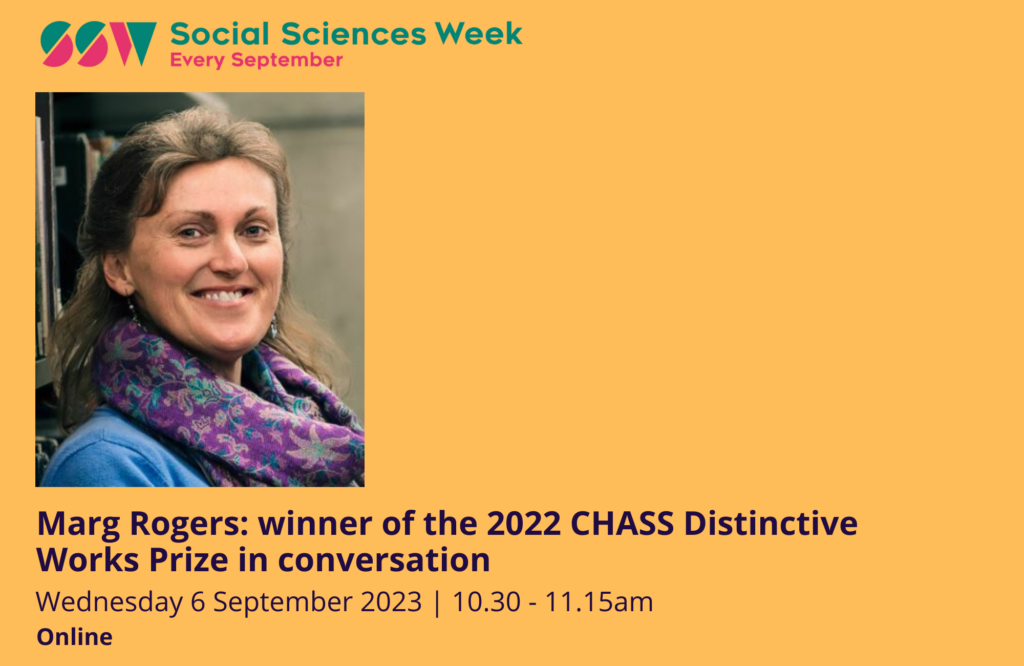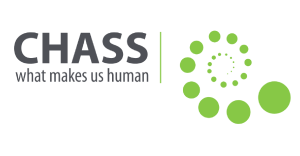Marg Rogers: winner of the 2022 CHASS Distinctive Works Prize

- This event has passed.

CHASS President in conversation with Marg Rogers, one of the 2022 CHASS Distinctive Works Prize winners:
Dr Marg Rogers is a Senior Lecturer in the Early Childhood Education team within the School of Education at the University of New England. Marg researches marginalised voices within families and education especially in regional, rural and remote communities. Specifically, she researches ways to support the wellbeing of military, first responder and remote worker families and early childhood educators. Marg is a Postdoctoral Fellow within the Commonwealth Funded Manna Institute that builds place-based research capacity to improve mental health in regional, rural, and remote Australia.
Building Research-based Co-designed and Co-created Supports to Improve the Wellbeing of Young Children from Service Families
Australia has over 650,000 First Responders, plus volunteers attending to more extreme and frequent climate emergencies, terrorism, and health emergencies. Additionally, Australia has 60,000 full time Defence personnel and over 496,000 Veterans. The children of these service personnel are affected by the stressors of service family life, including frequent and prolonged parental deployments and frequent relocations. Additionally, the children can experience the secondary transfer of trauma if their parent has a service-related injury of mental health conditions. The literature reveals these children are vulnerable to poorer education and health outcomes. PhD research revealed Defence and Veteran parents’ knowledge, confidence and competence to adequately support their young children’s wellbeing and build their resilience was limited due to the lack of age and culturally appropriate supports. To address this gap, the Child and Family Resilience Programs team used a mix of lived experience narratives from children, parents, and adult children of veterans to co-design and co-create free, research-based resources. The initial evaluations are positive, with the resources being used by service providers, Government departments and educators. New resources are being co-created and international partners are adapting the resources for their families.

